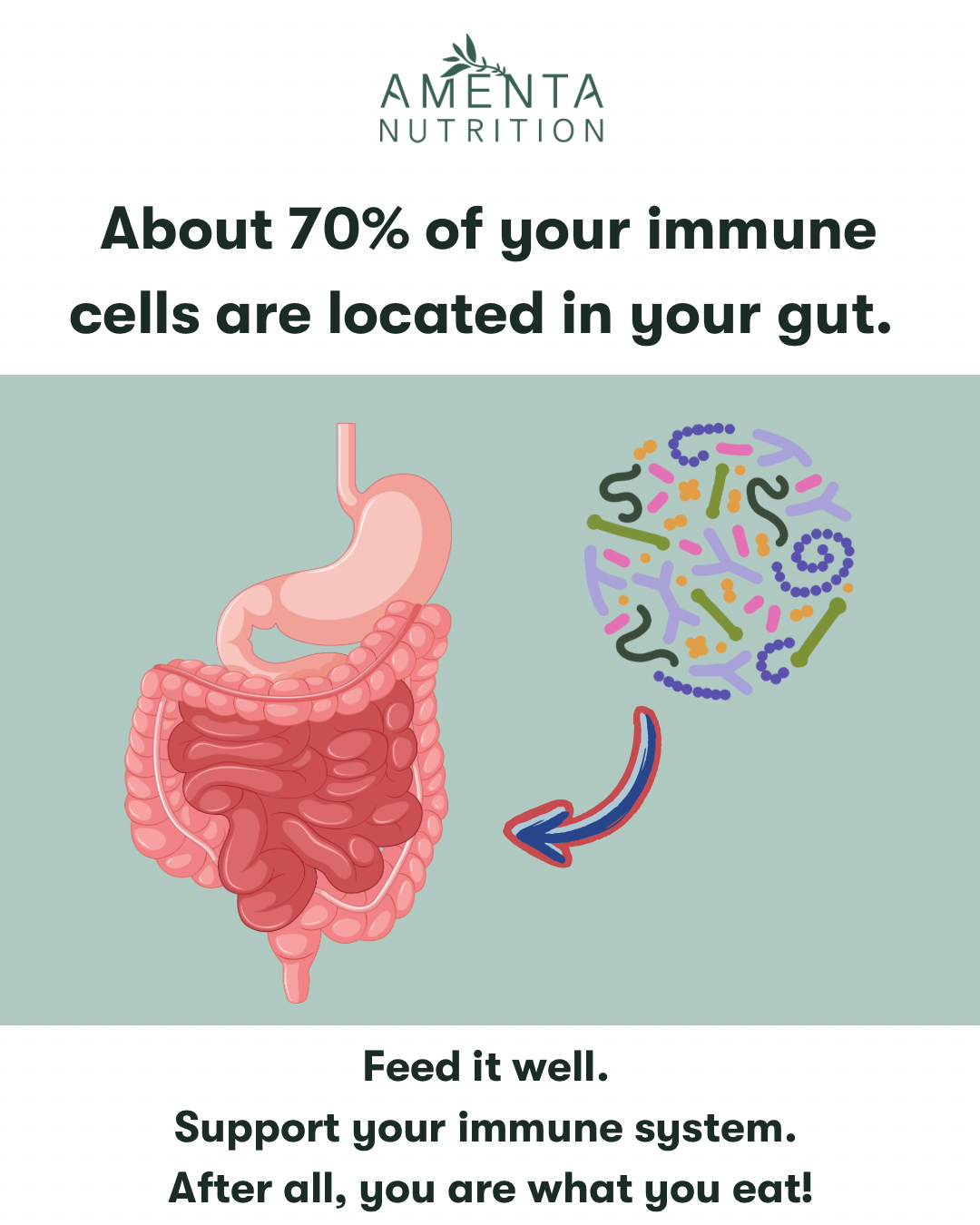Key Takeaways
Olive oil is one of the most popular plant-based oils in the world. It’s a staple in the Mediterranean diet and, depending on where it’s produced, can have a flavor that ranges from sweet to fruity to grassy or even peppery.
At Amenta, we love how olive oil tastes and include it in almost everything- salad dressings, as a finishing touch for veggies or pasta, a dip for bread, and even in cakes - But we also love olive oil because it is a heart healthy choice!
What makes olive oil a winner not only for your heart health but for your overall health as well? Read on to learn more including how you can attain the most benefits.
What makes olive oil heart-healthy?
Olive oil is high in monounsaturated fats (MUFA), especially oleic acid which makes up between 68-81.5% of its fatty acids. MUFAs are known for having the ability to reduce the “unhealthy or bad” low-density lipoprotein (LDL) cholesterol and to increase levels of the “healthy or good” high-density lipoprotein (HDL) cholesterol. It also includes more than 230 chemical compounds such as vitamin E, polyphenols, and lipid molecules. Together these components contribute to olive oil's antioxidant and anti-inflammatory properties.
Some polyphenol elements of virgin olive oil like hydroxytyrosol and oleuropein "eat up" and destroy superoxide radicals which are known to damage cells and can even change our DNA coding at high levels.
These antioxidant characteristics along with its MUFAs are reasons why olive oil intake is associated with a lower risk of all-cause mortality, cancer, and cardiovascular diseases including stroke, high blood pressure, coronary artery disease, or cardiac arrest.
Olive oil is great as a finishing oil, but what about using it for cooking…Is it still healthy?
Olive oil can be used for cooking and still be beneficial, although it will retain more of its antioxidant properties when cooked at lower temperatures. In a 2020 study published in the journal Antioxidants, Spanish researchers tested the phenolic compounds after cooking at low heat (120 C/248 F-sauteeing on med-low) and high heat (175 C/347 F-frying). They found that the polyphenolic compounds decreased overall by 40% when the extra virgin olive oil was heated at low and 75% at high temperatures.
This is important because some of the phenolic compounds that were reduced are known to be anti-inflammatory, protecting against diseases such as Alzheimer's and cardiovascular disease. The authors noted that the temperature was the main factor that resulted in the decrease in polyphenols and not the amount of cooking time or food interaction.
The bottom line: If you use saturated fat, like butter, instead you are putting yourself at significantly higher risk for developing chronic disease. Plus vegetables taste better cooked in olive oil than steamed so hopefully, you'll eat more of those too!
What does all this mean for you?
You will arguably reap the full benefits that olive oil has to offer if you eat it raw - as a finishing drizzle on your soup, as part of salad dressings, or in a dip like hummus. This does not mean you shouldn't cook with it - you SHOULD! Since we now know that cooking time was not significant in determining polyphenol loss, try to use a lower temperature to receive the most benefit.
What about olive oil’s smoke point?
Smoke point: When it comes to smoke point, olive oil gets a bad rep but it shouldn't. The smoke point is between 375-405 degrees Fahrenheit, therefore it's suitable for most cooking methods. If you are deep frying foods at very high temperatures, you may want to switch to another plant-based oil that can better handle that level of heat, like avocado or canola oil. Otherwise, you can absolutely use olive oil as your go-to cooking oil!
Is olive oil better than butter? What about margarine?
Olive oil is a better choice than butter because butter is a saturated fatty acid that is known to raise cholesterol levels and increase the risk of heart disease. Many kinds of margarine, especially those in solid or stick form, contain saturated fat as well as man-made trans fats (these will have "partially hydrogenated" on the ingredient label). Trans fats can raise unhealthy LDL cholesterol and decrease your healthy HDL cholesterol levels. Soft margarine found in a tub may be a better choice than hard margarine, but these are ultra-processed foods, which are now being shown to be deleterious to our health and waistlines.
What else should be included in a heart-healthy diet?
For optimal heart health, there are several nutrients that should be a part of your diet including potassium, calcium, magnesium, B12, B6, folate, vitamin k, EPA/DHA, soluble fiber, and probiotics, to name a few. How can you possibly ensure you are taking in all of these nutrients?
Eat a variety of foods! Instead of worrying about what you “shouldn’t” eat, focus on what you should eat. Adopt a plant-forward, whole-foods eating pattern that is high in fiber, healthy fats, and lean proteins. These include whole grains like oats, barley, farro, and whole-wheat; fruits and vegetables (remember to eat the rainbow to ensure you're receiving a variety of vitamins and minerals), nuts, seeds, fish, chicken, legumes, and beans.
A Mediterranean diet is a research-backed, healthy, and flexible eating pattern that can reduce your risk of heart disease. If you have already been told that you need to follow a low-sodium diet, the DASH (Dietary Approaches to Stop Hypertension) diet is a valuable guide.














